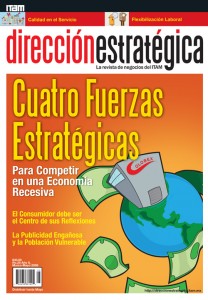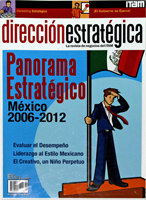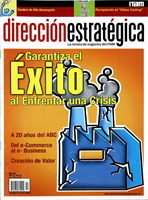 By: Renata Herrerías and José Luis Limón
By: Renata Herrerías and José Luis Limón
Mexican enterprises make a Samson-like effort to get off the ground, expand and sometimes just stay afloat in today’s complex, highly competitive and constantly changing economic environment. The risks of failure are high and, unfortunately, ever present. Offsetting them requires ongoing investment in material resources and human capital, plus readily available and adequate sources of financing.
According to the pecking order theory, management will first turn to internal sources of financing to cover the company’s operational and expansion requirements, calling on external sources only when the former run dry. Of these external sources of financing, the option that implies the lowest risk, such as debt instruments, is favored, leaving equity financing as a last resort.
 By: Dra. Gloria Robles
By: Dra. Gloria Robles































Strategic Guide for the Implementation of Sustainable Actions in the Workplace
By: Antonio Lloret
For companies to maintain a level of competitiveness that allows them to subsist, sustainability must be an integral part of their business strategy. These two aspects -competitiveness and sustainability- are key to success, hence the importance of using natural, economic and social resources efficiently and being able to adapt to consumer demands for sustainable goods and services. But instead of viewing these as limitations, companies should see these as strategic opportunities to create value.
Competitiveness, understood as the efficient allocation of resources (capital, work, technology) and the proper use of natural and social capital, is a prerequisite to the implementation of sustainable actions that enable a company to generate internal and external economic value, while the term “sustainability” presupposes rational use of natural, social and economic resources by companies. Thus, sustainability is about meeting the needs of the present generation without sacrificing the capacity of future generations to meet theirs.
(read more…)